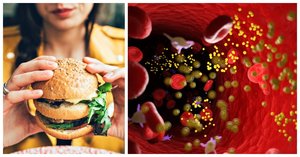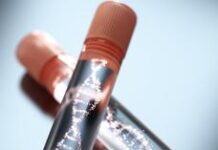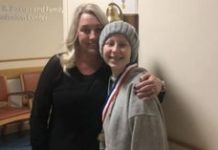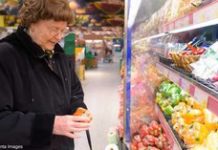Breast cancer cells can absorb dietary fat particles flowing through the bloodstream and use them as fuel, a study out of Dartmouth shows.Researchers have known for a while that breast cancer cells may benefit from fat particles, and we’ve long known that a fatty diet is bad for you. Previous studies have shown that a high-fat diet and obesity not only increase breast cancer risk, but worsen outcomes and prognosis for patients already battling the disease.However, we didn’t know exactly how a fatty diet affects breast cancer cells until a team out of Dartmouth discovered the mechanism behind it: endocytosis of lipoproteins.“We previously showed that fatty particles in the bloodstream may augment the growth of breast cancer cells,” said William Kinlaw III, MD, who led the study. “Our new work demonstrates that breast cancer cells can engulf large amounts of preformed fat from the blood using an unexpected mechanism of fat particle uptake called ‘endocytosis of lipoproteins.’”
 Photo: Adobe Stock/Sebastian KaulitzkiThe study, titled “Endocytosis of very low-density lipoproteins: an unexpected mechanism for lipid acquisition by breast cancer cells,” was published in the Journal of Lipid Research. Led by Kinlaw, the team was comprised of researchers out of Dartmouth and Dartmouth-Hitchcock Norris Cotton Cancer Center.The team found that breast cancer cells bind to fat particles that are circulating in the blood stream. Once they are bound together, the cancer cells absorb the fat cells into themselves using a process called endocytosis of lipoproteins. That leaves the breast cancer cells with a large supply of fuel to help them continue to divide, multiply, and spread.After the breast cancer cells devour this “free lunch,” the process reprograms the metabolism of the cell to recognize and take advantage of the fat particles.
Photo: Adobe Stock/Sebastian KaulitzkiThe study, titled “Endocytosis of very low-density lipoproteins: an unexpected mechanism for lipid acquisition by breast cancer cells,” was published in the Journal of Lipid Research. Led by Kinlaw, the team was comprised of researchers out of Dartmouth and Dartmouth-Hitchcock Norris Cotton Cancer Center.The team found that breast cancer cells bind to fat particles that are circulating in the blood stream. Once they are bound together, the cancer cells absorb the fat cells into themselves using a process called endocytosis of lipoproteins. That leaves the breast cancer cells with a large supply of fuel to help them continue to divide, multiply, and spread.After the breast cancer cells devour this “free lunch,” the process reprograms the metabolism of the cell to recognize and take advantage of the fat particles.
 Photo: Adobe Stock/CatalinResearchers were already aware that breast cancer cells can make new fat to fuel proliferation. In fact, there is a significant amount of research being done to develop drugs that target the synthesis of new fat by cancer cells.However, Kinlaw says that his work shows that breast cancer cells would still be able to survive that kind of treatment because of the endocytosis mechanism — AKA, their ability to absorb free-floating fat in the bloodstream.“Breast cancer cells can evade being killed by drugs that inhibit fat synthesis by simply taking up more exogenous fat particles,” Kinlaw said.
Photo: Adobe Stock/CatalinResearchers were already aware that breast cancer cells can make new fat to fuel proliferation. In fact, there is a significant amount of research being done to develop drugs that target the synthesis of new fat by cancer cells.However, Kinlaw says that his work shows that breast cancer cells would still be able to survive that kind of treatment because of the endocytosis mechanism — AKA, their ability to absorb free-floating fat in the bloodstream.“Breast cancer cells can evade being killed by drugs that inhibit fat synthesis by simply taking up more exogenous fat particles,” Kinlaw said.
 Photo: Adobe Stock/Eugenio MarongiuThis newly discovered mechanism shows that there is a direct connection between dietary fat and cancer cell biology. This could have a strong effect on future treatments.As for next steps, the team plans to continue their research on the impact of high fat diets using mice models.Source
Photo: Adobe Stock/Eugenio MarongiuThis newly discovered mechanism shows that there is a direct connection between dietary fat and cancer cell biology. This could have a strong effect on future treatments.As for next steps, the team plans to continue their research on the impact of high fat diets using mice models.Source











